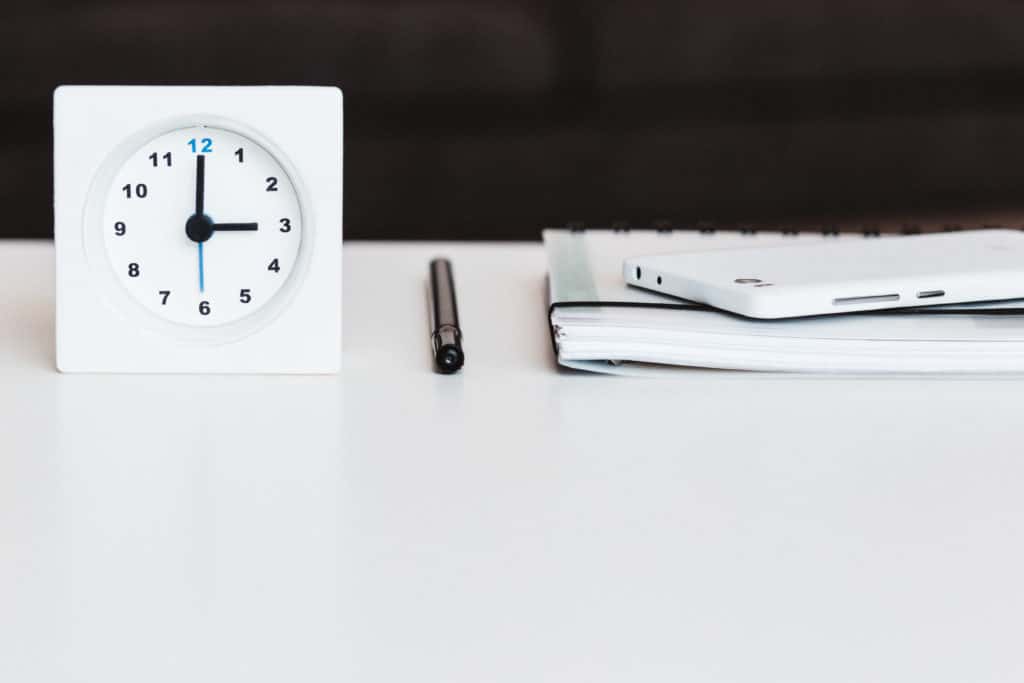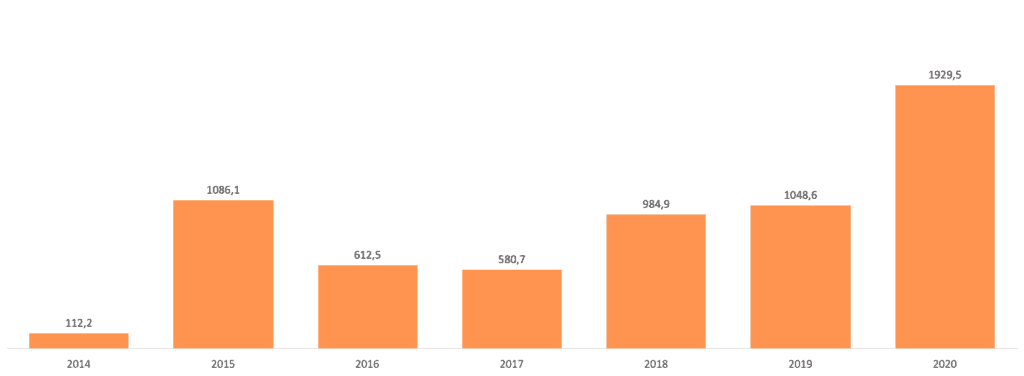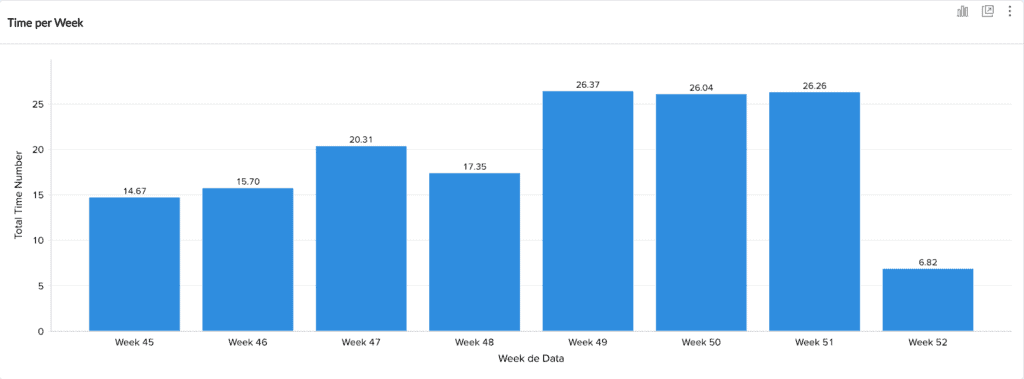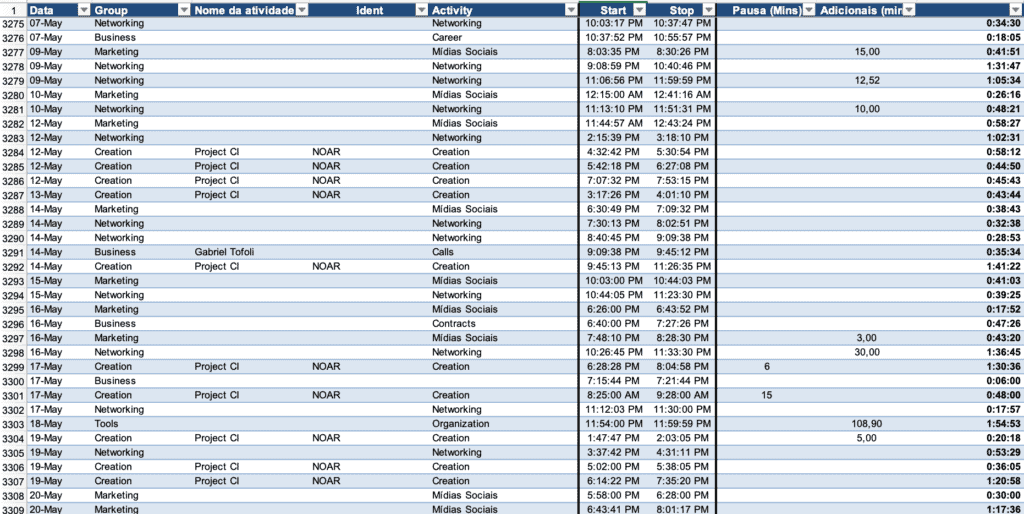Nowadays, time management is one crucial productivity element of most of us as music producers and this we’ll be talking today.
Most of the producers have day jobs and keep music as a second job, which can be challenging and daunting if you don’t plan yourself ahead of time. In a world with limited time, productivity is key to keep your focused on what you have to do in the amount of time you have available. I’ve been working for 10 years in music along with my day job and I’ve developed a schedule that allowed me to work more than 1040h per year in music, which is more than a part-time job.
Therefore, today I’m going to give you three tips on how to improve productivity and achieve more with the time you have. There are the topics in this post
- You Must Work Every Day!
- A Music Career Is Not Built Only of Creative Work.
- Setting a Weekly Goal
- Keep Track of What You Do
Let’s dive in!

You Must Work Every Day!
You should work EVERY DAY.
Of course, there are some days that you have a meeting or party, but other than that you should schedule work for EVERY DAY. In 2018, I worked 311 days out of the 365 days of the year, summing a total of 985 hours worked during the year of 2018. To quantify this better, I worked 41 full days, averaging 3h55 minutes every work day.
If we consider what I’ve worked in 2019, I’ve counted 1048h in 331 days worked out of 365 days of the year. That’s a whopping 4h10 minutes every work day, an increase of 15 minutes over 2018. You can look below to how many hours I’ve worked per year including the ongoing 2020, still having a day job, but having a lot more time since the Corona Virus crisis affected my job deeply.

Just to clear it up to you, all the hours that I’ve worked in 2019 are also considering a 25 days travelling around the world, having weekly reunions with friends and working 9h30 in my day job throughout the whole year. How did I manage that? Working almost every day including some Friday nights, and almost all Saturdays and Sundays.
I didn’t work 4h10 days though. There were months that I barely worked since I was travelling for more than half of the month, and days that I worked 15-30 minutes. The key takeaway to you is that every minute counts to your work. It could be as simple as clearing your email inbox, but they are work that you won’t have to do again later.
A Music Career Is Not Built Only of Creative Work.
Something not everyone thinks about is that working with music doesn’t necessarily mean CREATING music. Productivity in music is making the most of your time and maximizing the production output, which includes some backoffice work.
Considering the time I spent Creating, Mixing & Mastering, Brainstorming, and Studying, I spent 374 hours on music (39% of the time). While music includes a LOT more than only “creative” work, there is A LOT of time spent on networking, business issues (contracts, meetings, etc), and Marketing (social media, creating a mailing list, promo work, releases).
That’s why saying “I’m not feeling creative” is the worst excuse for not working. Not feeling creative? Go set up your mailing list, connect with other artists, or give feedback to other artists productions. You will be shocked at how much this will help your own work!
Setting a Weekly Goal
One of the things that makes me push harder, even when I’m not feeling like working, is setting a weekly time goal.
In the beginning of every year, I set myself up to work a weekly amount of hours. For example, for 2018 and 2019, I had to work, at least, 20 hours every week. Sometimes I struggled to keep this goal higher than 20 hours, but most of the times I was able to achieve it.
It has to be challenging, but, at the same time, it has to be something you’re able to achieve. If you put a weekly goal that is not attainable, over the course of the year, you’ll probably stop following it. At the same time, put yourself an easy goal and it won’t be a challenge to you.
You can see below how much I’ve worked in the last weeks of the year, and this gives three insights:

- Although I set 20 hours, I worked even longer in week 49, 50, and 51. If you feel motivated to work, keep on working, regardless of the goals you set! Every week is a new week and you have to achieve your goal every week.
- Week 52, the last week of the year, I honestly just wanted to chill. Sometimes, getting a week off is important to recharge your energy and creativity. You can read more of how breaks can improve your creativity in this post.
- I didn’t meet my goal in weeks 45, 46 and 48. I tried to come up with an excuse to explain why I didn’t do the work, but, after all, I didn’t do the work. No excuses.
Unless you have something important, coming up with an excuse for why you didn’t meet your goal is just fooling yourself. Don’t try to say “oh, but on average I DID work 20 hours a week in the last 8 weeks”, yeah, but you’re just coming up with another excuse for not achieving the goal during those three weeks. The goal is clear, AT LEAST 20 hours every week. PERIOD.
If you’ve ever heard of Tim Ferriss, among a lot of what he’s done, he does a process called “dreamlining”. Dreamlining is writing out 5 things you want to have, 5 things you want to do, and 5 things you want to be within the next 6 or 12 months. You then work backwards from these goals and essentially create a timeline for achieving your dreams, which will give you a guide to what you’ll have to do during your weekly hours.
Click here to download the dreamlining worksheet. This is an incredibly useful tool, and it was a HUGE source of inspiration for me when I first discovered it.
Keep a Time Track of What You Do
To achieve this weekly goal and to keep me on track, I have a time tracking spreadsheet that I use to track every time I start and stop working, as well as type of work I did. As I said before and as you can see below, you don’t need to spend all your time just making music. When I’m not feeling like creating, I just go do something else, like networking (line 3381), looking for vocalists (line 3388). If it’s something that will help you in the future, it IS work!

There are plenty of other apps that you can use that offer the same functionality as my spreadsheet.
- Toggl, for example, is an app that offers the same tracking tools with the ability to use groups and activities.
- RescueTime is a free/paid app that tracks your productivity in your computer. Different from Toggl or my spreadsheet, this app tracks my time spent in any app or website. These are tagged as productive, neutral or distractive tasks and RescueTime warns me everytime I pass my distracting activities quota throughlut the week.
Now it’s your turn
Time management is crucial for any kind of career. Especially if you have a day job, time management dictates how many hours you’ll be spending on your music career and productive you can be with it. Not only that, but it will keep you motivated to do the amount of work you know you have to do. Call me crazy, but since I started doing this (in November 2014), my productivity has improved a lot, and I’ve seen benefits in several areas of my life.
There you have it: my three time management tips to increase your productivity.
Now I’d like to hear what you have to say:
Which of the tips from this list are you going to implement first?
Let me know in the comments below!